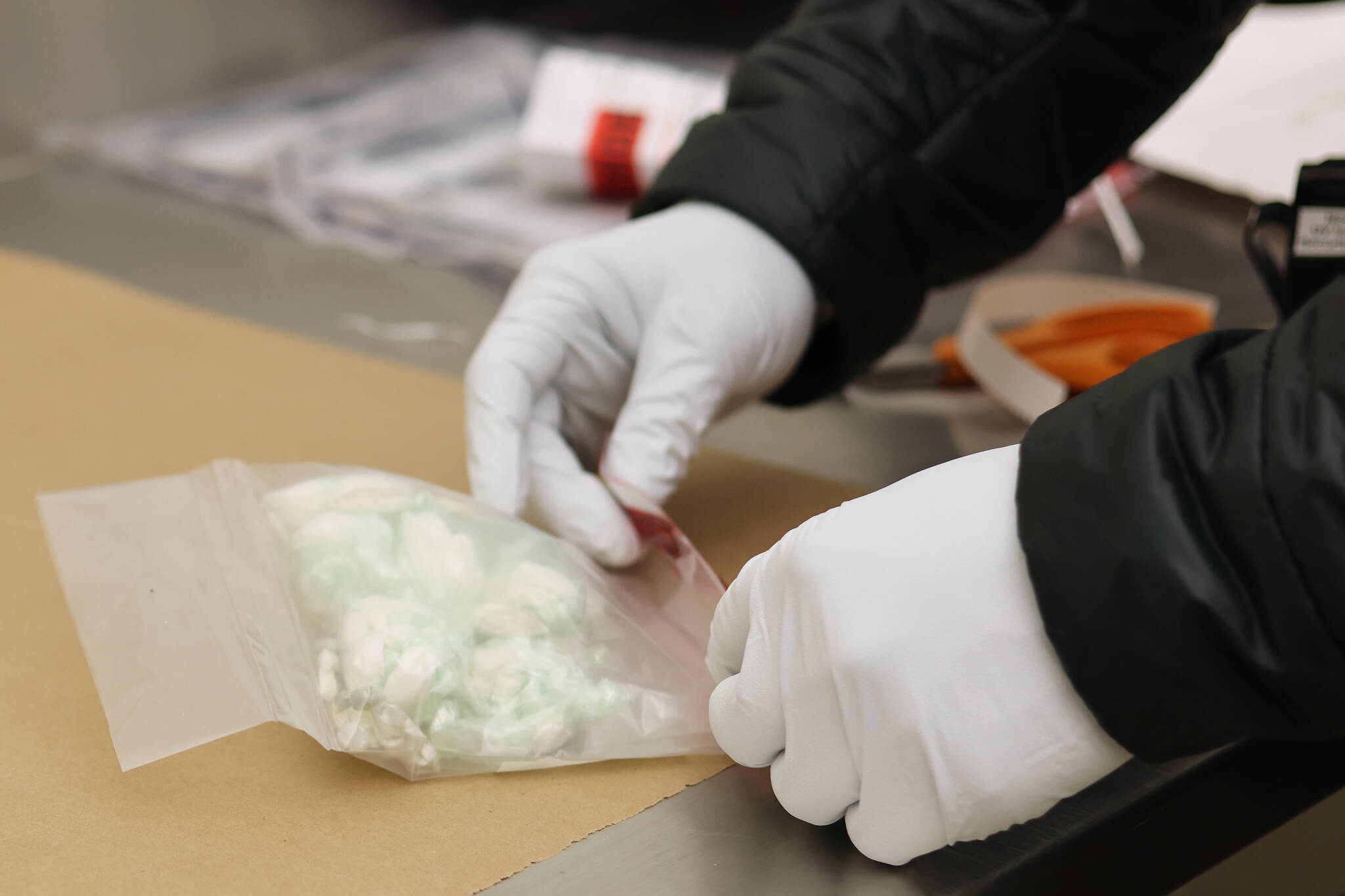Managing $58 million in opioid settlement money similarly to the Alaska Permanent Fund, with earnings going toward addiction treatment and education, is proposed in a bill introduced Friday by Gov. Mike Dunleavy.
Two funds would be established by the bill: an investment fund with the settlement and other potential contributions, and a remediation fund that would distribute annual earnings from the investment fund. The investment fund is similar on a general level to that of many of the other 45 states receiving about $26 billion as part of the National Opioid Settlement last year, but the distribution of funds among various government and other agencies varies widely.
“Providing sustainable, long-term funding will ensure the money the state receives from the opioid settlement agreements used to benefit all Alaskans, present and future,” Dunleavy said in a prepared statement.
The nationwide settlement funds are from opioid manufacturers and distributors. Larger states such as Florida and California received more than $1.5 billion each, while Alaska was among eight states receiving less than $100 million. Dunleavy, in a news release, said the state is expecting to receive an another $30 million in addition to the $58 million already received.
Senate Bill 133 establishes the Opioid Settlement Investment Fund, which in addition to settlement money can include allocations approved by the Legislature and donations.
“Under the bill’s terms, the Alaska Department of Revenue will invest the amounts received from the settlement agreements to grow the fund while still allowing for an annual appropriation from the fund to remediate opioid addiction in the state,” the release states.
A set amount of earnings — 5% of the fund’s average value for a period up to five years once it has that longevity — will be transferred each year to the Opioid Remediation Fund. That, in addition to paying for expenses such as management costs, will be managed by the state Department of Health “to support the prevention of opioid addiction and support opioid harm reduction, treatment, recovery, remediation, and education,” according to the text of the bill.
Dunleavy also previously introduced legislation imposing harsher punishments for opioid and other drug-related crimes. Among the provisions are a minimum prison sentence of seven years for selling opioids and making distribution resulting in death second-degree murder instead of manslaughter.
Substance abuse problems have grown rapidly in recent years, according to state health officials. Nearly 200 deaths occurred as a result of opioid overdoses in 2021, two-thirds of them involving synthetic narcotics like fentanyl, according to a recent report by the Governor’s Advisory Council on Opioid Remediation.
The state, like others filing lawsuits against drug companies, argued the businesses were negligent in their distribution. Officials noted when the settlement was announced that during a seven-year period ending in 2017 the state received more than 300 million retail doses of prescription opioid painkillers, about 420 doses per resident.
• Contact reporter Mark Sabbatini at mark.sabbatini@juneauempire.com

